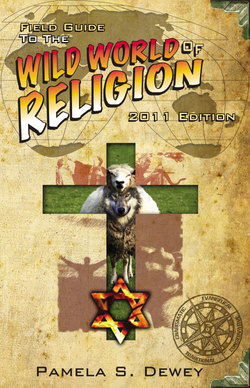Читать книгу Field Guide to the Wild World of Religion: 2011 Edition - Pamela J.D. Dewey - Страница 27
На сайте Литреса книга снята с продажи.
Trend Two: Increasingly bold claims of the miraculous
ОглавлениеThe average person unfamiliar with the varieties of religious beliefs of Protestantism would not be aware that the people they see on TBN are not representative of the fundamental beliefs of most of the denominations in the United States. They are almost all part of what is termed the Charismatic Movement. And most would be identified, even by denominations that consider themselves Charismatic (such as the Assemblies of God), as being on the extreme fringe of the movement. A “mainstream” Charismatic believes that miraculous incidents, including instant healings and deliverance from demons, did not end in the first century after the death of the Apostles, but continue to this day. And he believes that the “gift of tongues”—the ability to speak in an “unknown language” in prayer or in a church service—is also for today.
Those on the outer fringes of Charismatic belief, however, not only believe these things are possible, they insist that astounding healings—on the order of curing AIDS, and sight returning to one born blind, and quadriplegic polio victims walking again—are, or should be, everyday occurrences. They insist that “power encounters” with the supernatural demonic forces of the Devil do occur in public crusades attended by hundreds of thousands around the world, accompanied by astonishing signs and wonders. And they are convinced that uncontrollable laughter, violent shaking, or the uncontrollable urge to make animal-like sounds (such as roaring like a lion or crowing like a rooster) among large numbers of people at a religious gathering is evidence of the presence of the Holy Spirit in great power.
Some of these unusual activities are actually shown on certain programs on TBN, such as the broadcasts from the public appearances of healing evangelist Benny Hinn. But many viewers seem unaware that all the regulars on TBN shows are either involved with or supportive of this brand of what some have dubbed “Hyper-Charismania.”
The problem with these claims of the miraculous is that they are bold—but in most cases utterly unsubstantiated. For instance, a number of researchers over the last few decades have attempted to contact various Charismatic ministries and get medical documentation regarding healings that were claimed to have happened at crusades. Just because someone tells Benny Hinn on a stage in Atlanta, Georgia, that he believes that he has been healed of cancer doesn’t make it so. It is undeniable that no astonishing, inexplicable, instantaneous healings, such as a withered arm on a crippled child being “made whole,” have ever been caught on film. And none of the researchers have been provided with clear medical documentation for the grandiose claims of the miraculous. This does not mean, of course, that God doesn’t heal. It merely means that the incredible level of hype surrounding certain ministries, which attempts to validate that God is blessing the ministry because of the astonishing miracles claimed, is open to hard questioning.
In all too many cases, Charismatic preachers don’t establish their teachings clearly on scripture. Instead, they build them around experience, the kind of subjective experiences described above. A Roman Catholic and a Methodist used to believe that their theological differences were so serious that they were unable to view each other as “brothers in the faith.” But if Christian brotherhood is not based on biblical truth, but on contemporary experience of what is believed to be a manifestation of the miraculous, then the barriers between denominations disappear. And you have one homogenized group of people. If speaking in tongues, or rolling on the floor of a church service convulsed with “Holy Laughter,” is evidence of someone being “saved” or “filled with the Holy Ghost,” then all who manifest these things must agree that “doctrine isn’t important.” And if doctrine isn’t important, why waste much time trying to teach doctrinal concepts from the Bible? This seems to be the approach of many of the teachers on the Trinity Broadcasting Network.
